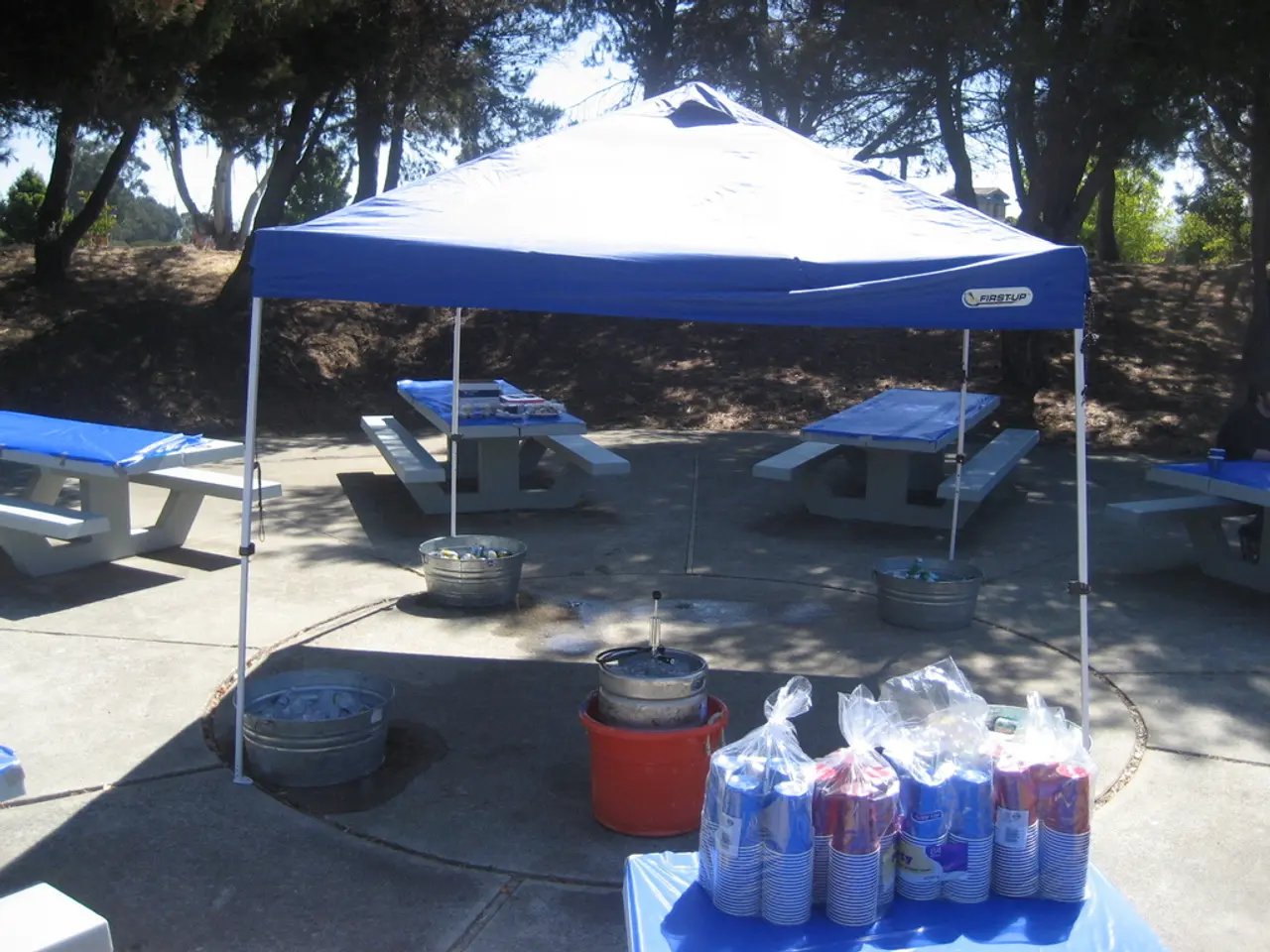Strategies for Hosting a Zero-Waste Gathering and Additional Sustainable Guidelines
In today's world, minimising environmental impact has become a priority for many. This is especially true when it comes to events, with more and more people opting for zero-waste celebrations. Here's a comprehensive guide on how to organise a zero-waste event that is both enjoyable and environmentally responsible.
Venue and Waste Management
Choosing the right venue is crucial. Opt for locations with sustainability policies and established waste-sorting systems. Set up multiple waste collection points (compost, recycling, landfill) and train staff or volunteers to guide guests in proper sorting. Plan logistics for waste recovery and identify local composting or recycling facilities. Prepare backup supplies cautiously to avoid last-minute reliance on disposables while aiming to minimise waste overall.
Eco-Friendly Disposable Plates and Cutlery
Disposable wood or bamboo plates and cutlery made from certified biodegradable, compostable materials are a practical and eco-friendly choice. Ensure these products meet performance standards (durability, grease resistance) to avoid waste from breakage or unusable items. For a creative touch, consider edible cutlery or plates where possible.
Sustainable Invitations
Send digital invitations via email or event platforms to eliminate paper use. If physical invitations are necessary, use recycled paper or seed paper invitations that guests can plant after use. Minimise printing and avoid plastic laminates or embellishments.
Party Favors
Opt for edible party favors such as homemade treats wrapped in reusable cloth bags. Alternatively, offer experiences (like workshops or donations to charity) instead of physical gifts. Use reusable or recyclable packaging rather than plastic or foil wrapping.
Food and Beverage Choices
Serve mostly plant-based, locally sourced, and seasonal foods to reduce environmental impact. Purchase snacks in bulk and avoid individually packaged items. Use refillable drink dispensers or kegs instead of single-use plastic bottles. Serve drinks in reusable or compostable cups. Plan portions carefully and arrange to donate leftovers to shelters or provide reusable containers for guests to take food home.
Avoiding Single-Use Plastics
Replace plastic straws, cups, and cutlery with reusable or compostable alternatives. Decorate with reusable or natural materials (fabric bunting, fresh flowers, edible centerpieces) instead of plastic decor. Use reusable glassware or metal cups at bars and beverage stations.
Seasonal Essentials and Decorations
Favor decorations made from natural, local, or recyclable materials. Use items you already have or rent decorations and tableware to reduce consumption. Incorporate edible or compostable decor that can be eaten or composted after the event. Avoid plastic balloons or single-use banners.
Measuring and Communicating Impact
Weigh and document waste produced to highlight reductions and successes. Gather attendee feedback to improve future events. Share the event’s zero waste achievements on social media and with partners to motivate others.
By integrating these strategies—choosing an eco-friendly venue, using compostable wood cutlery and plates, opting for digital or recycled invitations, providing sustainable favors, selecting seasonal and local foods, avoiding plastics, and focusing on reusable decor—you can successfully host a zero waste event that is enjoyable and environmentally responsible.
Contact local suppliers and look for recommendations for vendors that sell locally produced and in-season party products. Organising a zero-waste event is a way to minimise soil and water pollution. Using eco-friendly products like disposable wood plates and invites made from recycled paper can help minimise carbon footprint. Choosing eco-friendly suppliers and vendors who avoid plastic and minimise packaging can help reduce waste. Going paperless for invitations is practical, easy, and reduces wait time for guests. Disposable wood plates and cutlery are practical, cost-effective, and eco-friendly alternatives to traditional dinnerware for events. Contemporary disposable plate designs are getting better and can fit well in a formal setting. Eco-friendly venues can be found in various forms such as country houses, function halls, or gardens. Environmental pollution is a widespread problem affecting land and seas due to waste disposal issues.
- By ensuring the venue prioritizes sustainability and has established waste-sorting systems, you can efficiently manage waste at a zero-waste event.
- Consider using eco-friendly, biodegradable, and compostable disposable plates and cutlery to minimize waste and contribute to a healthier environment.
- For invitations, opt for digital invitations or those made from recycled paper to reduce paper consumption and promote a sustainable lifestyle.
- Edible party favors, such as homemade treats, are not only delicious but also environmentally friendly alternatives to traditional party favors.
- Serve locally sourced and seasonal foods to support the local economy and reduce the environmental impact of transportation.
- Decorate the venue with natural, locally sourced, or recyclable materials to create an eco-friendly aesthetic and minimize environmental pollution.




